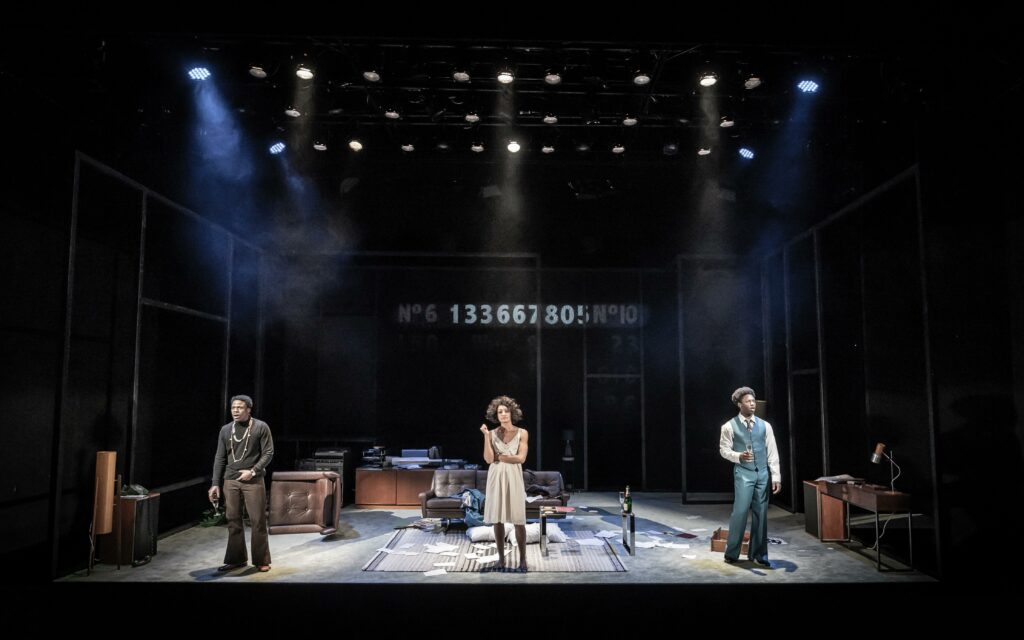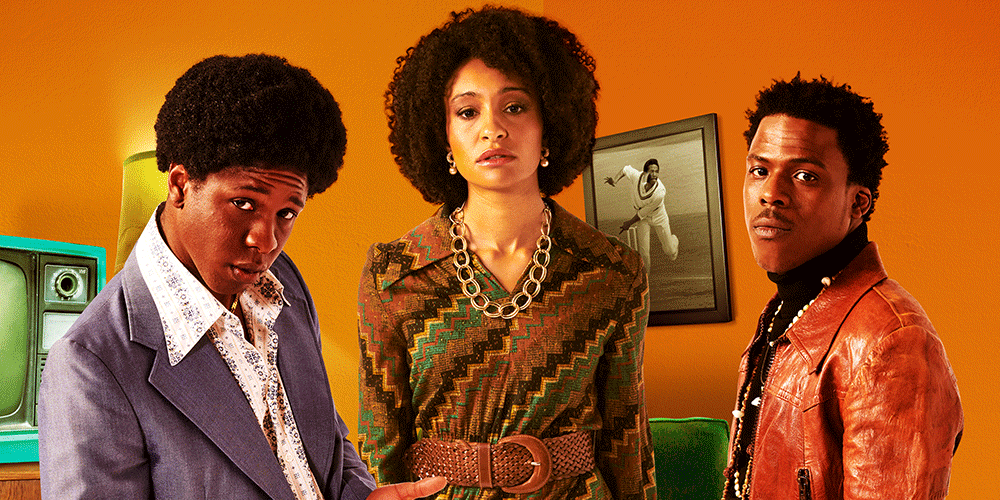 (3 / 5)
(3 / 5)
The title of this play, in itself should give you an inclining to its concept and writing. Blunt, dark, surely to take you by the lapels and shake you.
The Death of a Black Man, written by Alfred Fagon in the 70’s is a raw and laid bare story about black culture in the UK and the development of generations from the Windrush movement and London itself. There is no beating around the bush with this play and it takes a lot to sit and watch with its darkness seeping in slowly.
The Death of a Black Man tells the story of Shackie, his career development as a wheeler dealer in London, his battle with his own heritage and how far he will go to make it as a black man in a still very difficult and competitive society with race. Soon, his equally minded best friend comes along, selling his ideas and the two concoct ideas of exploitation of the white man, to make money but also to support black power. Starkly contrasted, Shackie’s older ex girlfriend appears, a black woman but from a middle class background, lacking an interest in her heritage and support of the movement. It is soon evident that these two will stop at nothing to make it in this world, even if it means betraying those in their own community.
Fagon limits nothing in this play. The language is of its time, with words and phrases perhaps not said today, making it shocking and at times awkward – but as this play grows darker and darker, this feeling is clever and well executed and only adds to the tension and the final crescendo. What is brilliant is there is nothing held back about Caribbean and London Black community culture, highlighting the development of these 2nd Windrush generations with their joint use of London and Caribbean phrasing and accents as they intertwine. As someone from neither community, this takes a little time to feel yourself in the swing of the writing and how it is produced but feeling the energy of those in the audience from these communities, it feels as if it is on point and reflective of those communities. It also gives a great insight into the culture of the time and how those communities were feeling, contrasting views between Shackie, who is happy to just create a career and utilise his heritage to get there; Stumpy who is a developing activist for Black Power with a underlying hatred for white people and the country he is in and Jackie, whose middle class background has washed away any interest in her heritage but who is as dark and cynical as the other two about life.
With only three performers, it felt as if we had cut away into this living room and was easily watching a normal conversation. Their acting was effortless and easy, with the added 70’s aesthetic making this feel like a piece of history. It felt very reflective of what you usually see at The Royal Court which is always very well done – something simple and naturalistic, with elements of theatricality bursting through. In this case, the conversation acts out naturally and a change of scene brings in the contrasting theatricality with music, lighting; the stage and scene changes before our eyes as the characters almost fasten up time, moving props and staging which would have happened naturally throughout several hours as they drink champagne into the night. The final part felt particularly theatrical, with naturalism taken away and symbolism and theatricality added to enhance the darkness of the writing.
My only critique is that it felt as if these natural, spoken scenes took too long and didn’t add or emphasise much by doing so. Fagon, sadly, writes about Shackie’s fathers death which unfortunately mirrored the writers own, little did he know. And while a brilliantly written play, it felt as if much of this production was trying to keep to its legacy, with a fear of maybe changing too much, cutting too much out or bringing it to the modern stage. Perhaps the fear of changing it and therefore it no longer being a homage to Fagon held it back in what it could have become. Points and elements, which as previously said were very much of the time, felt a little like it went over my head but I can definitely appreciate that this may be because I wasn’t alive in the 70’s to understand the references or culture, as well as the Carribbean/London Black Community not being my community. I would be really interested to hear from a reviewer of this community to know how reflective this really is and how it relates to the modern community.
The Death of a Black Man is interesting, it is dark, it is cleverly executed but something felt lacking and as if it really held back what is really possible with this production.


